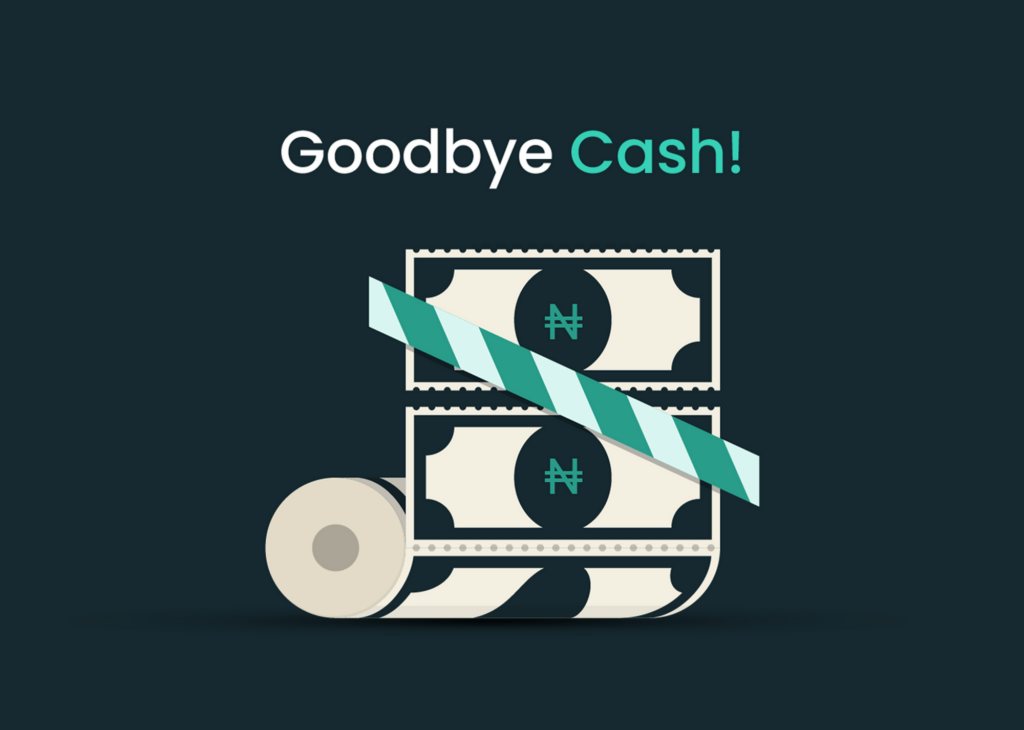Picture this.
It’s 1996, McDayo Plc needs to pay vendors for a building contract. Mr. Dike, Head of the Finance department issues cheques to the different parties. Their representatives come over to McDayo headquarters to pick up the cheques. One of the Vendors, Unicorn Builders Enterprise heads straight to the bank to cash the cheques. Some hours later, he’s out of the banking hall with a Ghana-must-go bag full of cash.
Good times. Cash was king.
Cash as a means of value exchange dates back to 650 BC. Rulers, soldiers, merchants, and everyday people made transactions using silver coins, and other types of tokens. Over the years, governments have created banknotes and coins as means of legal tender.
Cash has advantages no doubt. It is tangible and works well for simple everyday transactions.
However, cash is no longer king in any economy that is serious about growth.
We now see a direct correlation between upward economies and the adoption of cashless policies; for example, countries like France, the UK, USA and Germany are bullish in their drive for cashless policy adoption.1
One might argue that African countries are still far from full adoption of cashless policies and they would be accurate. However, here are some reasons why we’re making these bold statements:
- Expert predictions say cashless transactions will grow 61%, 82% globally, and 64%, 78% in Africa by 2025 and 2030 respectively.
- Pan-African payment infrastructure is committed to driving cashless adoption across the continent.
- The Central Bank of Nigeria is driving 95% for financial inclusion by 2024.
- By 2030, cash will make up only 5% of the money available in Nigeria.
- The success rate of agency banking in Nigeria.
- The increasing cost of printing banknotes and minting coins by central banks.
- Cash is still the easiest way to launder money and perpetuate fraud. Cash transactions are not as traceable as digital payments.
- Cash stalls cross-border transactions for businesses.
The benefits companies gain from adopting cashless transactions are enormous.
Today, business leaders must start taking bold steps towards driving non-cash options as the main element of their payment systems. This means leveraging digital payments models that provide better audit trails, cross-border commerce, and overall growth for their businesses.
Key benefits for businesses that take this bold step include:
- Cheaper payments costs
- Transparent transactions
- Fraud mitigation
- More revenue
As more businesses adopt non-traditional means of transacting with each other, we believe that in less than a decade, we will say goodbye to B2B cash-based payments.
After all, no king reigns forever.




